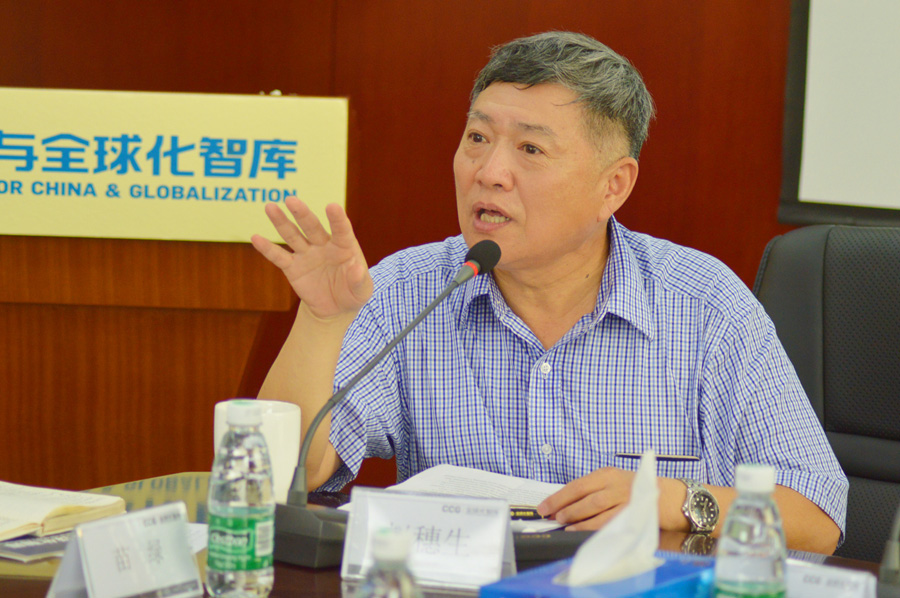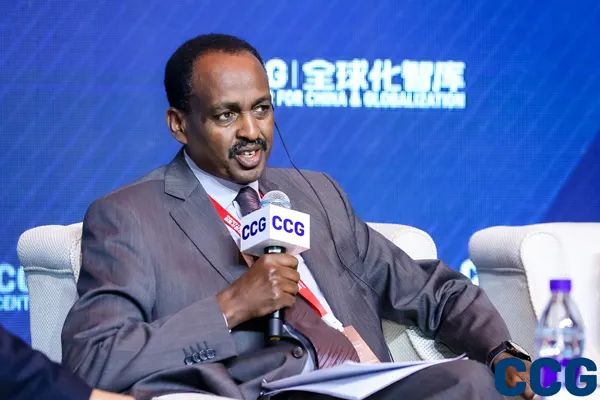Zhao Suisheng: China, US can jointly shape international order
August 08 , 2017
Zhao Suisheng,academic advisor of Center of China and Globalization(CCG), director of the Center for China-US Cooperation, Josef Korbel School of International Studies, University of Denver.
“International order” means the rules, or in other words, universal values, concepts and mechanisms, in global governance. It is shaped by major powers and followed by smaller countries. Rising powers are always attempting to break these rules and re-establish a new order that reflects their values.
The current international order was established by the US after WWII. Many believe that the order is now challenged by China, a rising power, and also by the US itself, as practices by US President Donald Trump are challenging and even destroying the current order.
The US is indeed confounded by some problems, and China is dissatisfied with the current order and is actively participating in international governance.
But Beijing will not replace Washington. This is determined by the nature of current international order.
At the beginning of the founding of the People’s Republic of China, the country was excluded from the UN and didn’t participate in the establishment of the post-WWII international order. Even if Beijing now is regarded as challenging the order, it has never deviated from the current system, especially the principle of sovereign equality. For instance, mutual respect for territorial integrity and sovereignty is at the core of the Five Principles of Peaceful Coexistence put forward at the Bandung Conference in 1956. China has been gradually contributing to the current international order since it joined the UN in 1971.
It has taken Beijing quite a long time to adapt to international rules on sovereign security, human rights and other sensitive agendas. While China once maintained silence on security affairs, it is now playing an important role in UN peacekeeping operations, arms control and other fields. China’s increasing power is the fundamental reason for the shift.
But China is still dissatisfied with the current order. The rules represent mainly Western values, and, given political and cultural divergences, China regards many of the rules as unjust and unreasonable.
Shifts in economic strength have not been reflected by the current order. Under the current order, China has not obtained rights and discourse power that can match its strength and influence. Therefore, Beijing wants changes, but is suppressed by Washington.
China is dissatisfied with US double standards.
While Washington requires other countries to obey the rules, it does not act in accordance to the rules on most occasions, especially when the situation is unfavorable to it. Washington proposes to shape liberal and multilateral global institutions, but it has established an alliance system that excludes China.
As a result, Beijing is playing a more active role in international affairs, but this is regarded as a challenge to the current order and Washington. For instance, the Shanghai Cooperation Organization, the Conference on Interaction and Confidence-Building Measures in Asia, the Regional Comprehensive Economic Partnership and other Chinese initiatives are believed to be an effort to counter US interests. China also put forward a number of rules about the sea, outer space and the Internet that are different from US.
But Beijing has no intention to target Washington, and the conditions are immature for it to replace Washington in shaping the international order.
To begin with, China’s hard power is not strong enough, and China doesn’t have enough resources to provide public goods for the current order. Soft power is also significant in global leadership, and more efforts are needed to make Chinese values and the Chinese model win approval from other countries. Meanwhile, China is still a beneficiary of the current order. It has to be admitted that the US-led security system has to some extent facilitated peace and stability in Asia.
Therefore, even if China is dissatisfied with the current international order, it will not replace the US in making new rules in Asia and the whole world. China is not rewriting the rules, but is attempting to have a higher status in rule-making. Therefore, there is enormous room for Beijing and Washington to negotiate and cooperate.
The US can transfer some power to China so that the two countries can jointly shape the international order. In the meantime, China should clarify that it is an upholder of the current order. China is just trying to reform the rights granted to developing countries.
The author is director of the Center for China-US Cooperation, Josef Korbel School of International Studies, University of Denver. This article is an abstract of his recent speech delivered in Center For China And Globalization.






